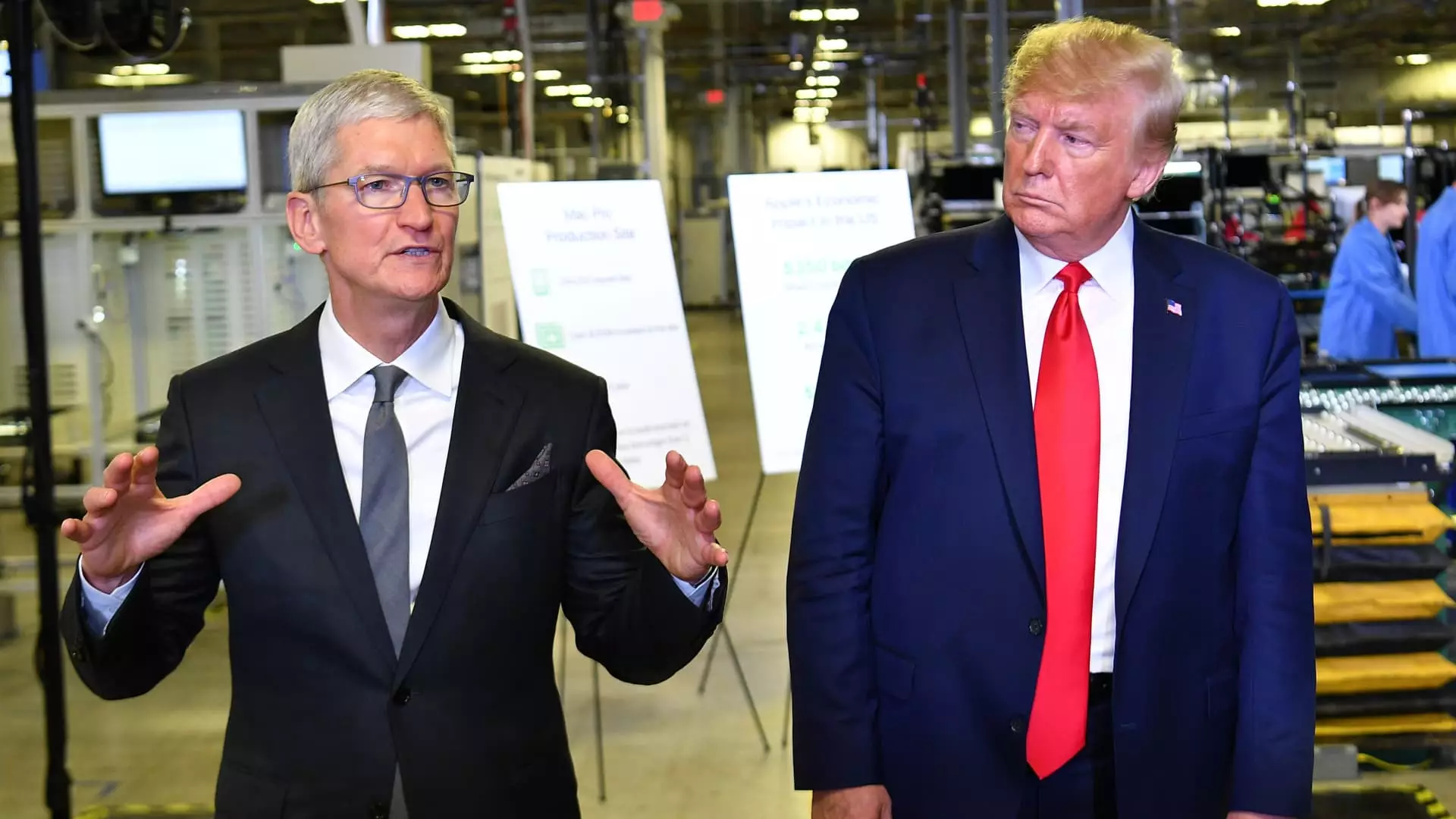In a dramatic social media declaration, former President Donald Trump has sharpened his focus on Apple, asserting that the tech giant must manufacture its iPhones within the United States or face a crippling 25% tariff. This ultimatum is not just a corporate maneuver; it signals a broader narrative about national pride and economic independence. Trump’s directive, delivered via Truth Social, highlights his expectation that American consumers should purchase domestically-produced goods—a viewpoint that holds undertones of a resurgent nationalist sentiment.
Manufacturing domestically may sound appealing on the surface, but this hardline approach is likely to inflict economic damage. Apple’s manufacturing operations have long been rooted in China, and while the company does have some plans for production in India, the transition is fraught with complications. The reality is stark: moving production to the U.S. would likely lead to soaring prices for consumers. Analysts predict that a U.S.-made iPhone could soar to an astronomical cost of around $3,500, making this once-cherished tech device inaccessible for many.
The Economic Fallout of Elevated Prices
The impact of Trump’s tariff threat goes beyond simple economics; it has the potential to destabilize the consumer market entirely. Historically, Apple’s pricing structure has fostered a loyal customer base that values innovation and quality, but how far can consumer loyalty stretch when faced with such exorbitant prices? Trump’s proposal ignores the marketplace realities. An iPhone priced at $3,500 would effectively create a sizable gap between consumers and cutting-edge technology, undermining Apple’s long-term business viability.
Moreover, the idea of border tariffs raises questions about economic regression in an increasingly globalized world. Rather than adapting to shifting trade dynamics, Trump’s rigid stance risks alienating consumers who seek both quality and affordability—attributes that have been synonymous with Apple products until now. The irony is palpable; an effort to bolster American manufacturing may, in fact, drive consumers away from a beloved brand.
Political Ramifications and the Impact on Apple
Trump’s trade policies are not solely about American production; they have undeniable political ramifications. By singling out Apple, he is leveraging corporate pressure as a tool to reinforce his agenda—an approach that could easily backfire. Tim Cook, Apple’s CEO, has navigated the delicate balance of maintaining relationships with both American and international stakeholders. Cook’s previous efforts to align with Trump’s administration, evidenced by his sizeable donation to Trump’s inaugural fund, may now feel like they have backfired.
The essence of free enterprise is innovation, but Trump’s pressure tactics might stall Apple’s creative momentum. The company’s recent announcement of a staggering $500 billion investment in U.S. development, particularly in artificial intelligence, is commendable, but it risks coming under scrutiny as consumers witness the potential for inflated product prices.
Tensions Looming Between Traditional Trade Partners
This does not exist in a vacuum; the global trade landscape is intricately woven with interconnected interests. Amid escalating tariff threats from Trump, who recently issued a call for a 50% tariff on products coming from the European Union, we see widening rifts that could have significant implications for international trade relationships. Does Trump genuinely believe that higher tariffs will encourage better practices among foreign companies? Or is this just political posturing in a pre-election environment that threatens to put American consumers last?
The security of Apple’s supply chain, which has enjoyed relative stability, is now in jeopardy, raising the specter of diminished product availability as Foxconn, one of Apple’s key assembly partners, expands its operations in India. These strategic movements underscore an industry grappling with the fallout of a capricious political climate where the ramifications of foreign relations slam into domestic agendas.
The threat posed by tariffs—and the resultant price hikes—has consequences that ripple through the economy. It opens a Pandora’s box of complications that may imperil consumer trust, the keystone of many brands, including Apple. If trust falters, the loyalty that decades of innovation and market leadership have cultivated can easily unravel into consumer disillusionment. Rising prices may cause customers to question whether the iPhone remains synonymous with value and quality or becomes a luxury good only accessible to the privileged few, ultimately distorting the commitment to economic equality that many Americans hold dear.

